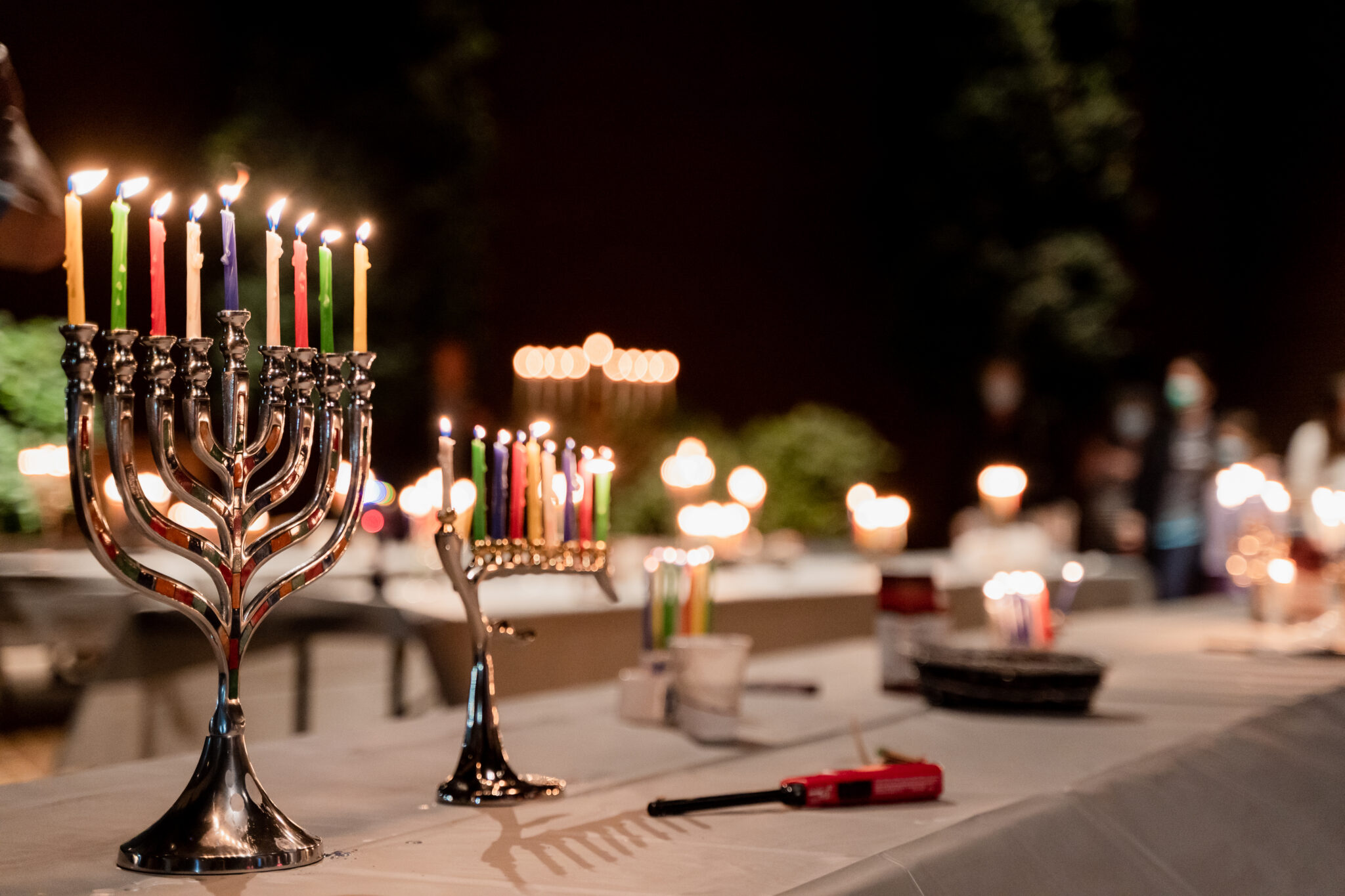Greenstein: Hanukkah’s message is one of hope
By: Anna Bearman | December 10, 2023
Enter a search request and press enter. Press Esc or the X to close.

I just received the funniest Hanukkah card in the mail. The cover reads: “It’s Hanukkah! Time for people everywhere to repeat those familiar words of the season …”
The inside continues with a series of humorous questions about the spelling of this Jewish holiday. Maybe you’ve had similar questions. How many Ns? How many Ks? Is there a C or isn’t there a C? Why do some people make that strange noise in their throat at the beginning of the word?
Moving from the original Hebrew, there are actually eight different ways to spell the name of this week’s Jewish holiday in English — all of them correct. No matter how you letter it, Hanukkah contains a beautiful and powerful message.
“A little light drives away much darkness,” the early rabbis said. Every good act and healing gesture can spark a light of hope in a dark world.
The extraordinary London Reform Rabbi and community leader Rabbi Hugo Gryn (z”l) who survived Auschwitz, teaches a related and imperishable lesson from his own childhood.
When the then 12-year-old Hugo and his father were among the starving Jews in the death camps, a fellow Jewish prisoner had announced that Chanukah would begin at sunset. Hugo thought his dad was crazy when he told his son to save the one butter pat they were given and to use it as oil to light the Chanukah lights.
“But they’re starving us to death, Dad,” Hugo replied.
“My dear son,” his father said, “you and I have learned in this place called Auschwitz that a person can live for three days without food. But I want you always to remember that a person cannot live for three minutes without hope. These Chanukah lights, Hugo, are lights of hope.”
Hugo and his father miraculously survived the Holocaust; his other family members did not. But his point holds and was echoed by the Rev. Martin Luther King Jr over 50 years ago: “Darkness cannot drive out darkness; only light can do that. Hate cannot drive out hate; only love can do that.”
Here we are in Memphis, almost 56 years after King left us, standing and then fallen on a balcony in Downtown Memphis when he was only 39 years old. Here we are on this third day of Chanukah seeking ways to fulfill what Rabbi Gryn’s father was teaching him during Chanukah at Auschwitz — that to be a Jew, to be a child of God, is to increase the light of decency, honesty and goodness.
It is a strange fact of history that without Chanukah there would be no Christmas, since Chanukah commemorates the survival of Judaism in 165 BCE against all odds. It’s all chronicled in the book of Maccabees.
A Greek-Assyrian tyrant who literally thought he was God, Antiochus Epiphanes (which means “God manifest”), forbad Jews from practicing their faith. He ransacked the Temple and paraded Jewish women and their children through the streets of Israel before killing them. He left the Jews of that time, led by Judah Maccabee, no choice but to fight for their religious freedom. Had the Maccabees not prevailed, Judaism would have died out over a century before Jesus the Jew was born. Hence the historical linkage between Chanukah and Christmas.
The miracle of Chanukah, however, is based on the legend of what the Maccabees found after restoring the pillaged Temple in Jerusalem. The legend is that there was only enough oil in the Temple to last one day, but it stayed aglow for eight. Above every synagogue ark today is an eternal light, a witness of God’s light to the world, God’s presence in every human being, and the eternal light of the Jewish people. As a remembrance of that miracle, we increase the light each night of Chanukah in a special candelabrum with eight spaces, plus a spot for a helper candle, shamash, with which the other candles are lit. The message of the helper candle for us is that it never loses its own light when it gives — it only increases the light. We need a candle to light the candles — the shammes reflects the reality that we need each other to bring light, and that we don’t diminish our own light when we help others glow.
Interestingly, Chanukah did not make the final cut of the Hebrew Bible when the canon was decided in the first century. The likely reason is this: Chanukah is the first recorded struggle for religious freedom with the military victory of the smaller Maccabees miraculously defeating the Greek-Assyrian army, but it wasn’t long before the crushing Romans overtook Jerusalem and brutalized, crucified, and massacred the Jewish descendants of the Maccabees. The biblical reading, therefore, chosen by the early rabbis for Chanukah focuses on the power of the human spirit, not the spirit of military power. “Not by might, nor by power,” the angel of God says in Zechariah 4:6, “but by My spirit ….”
The Chanukah story is thus not simply about an outer struggle for freedom and independence. It is also about finding inner strength and light no matter what the darkness. Just as that small bit of oil discovered in the Jerusalem Temple seemed far too little yet proved to be more than enough, perhaps it is possible to find that even in our own darkness, there is light enough. Chanukah teaches that even when it’s darkest, it is always possible to find light.
This site uses cookies to offer you a better browsing experience. If you continue using our website, we'll assume that you are happy to receive all cookies on this website and you agree to our Privacy Policy.